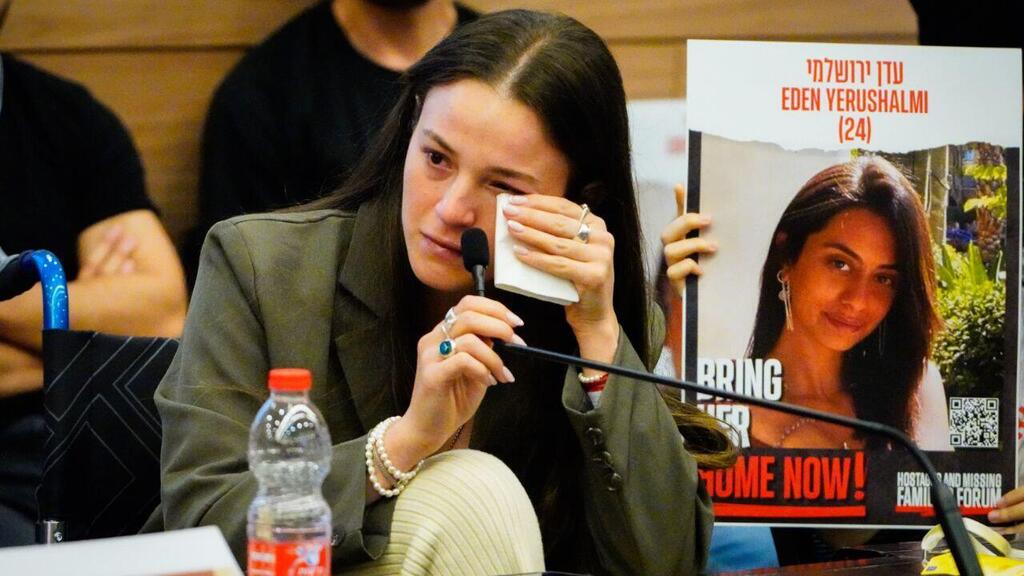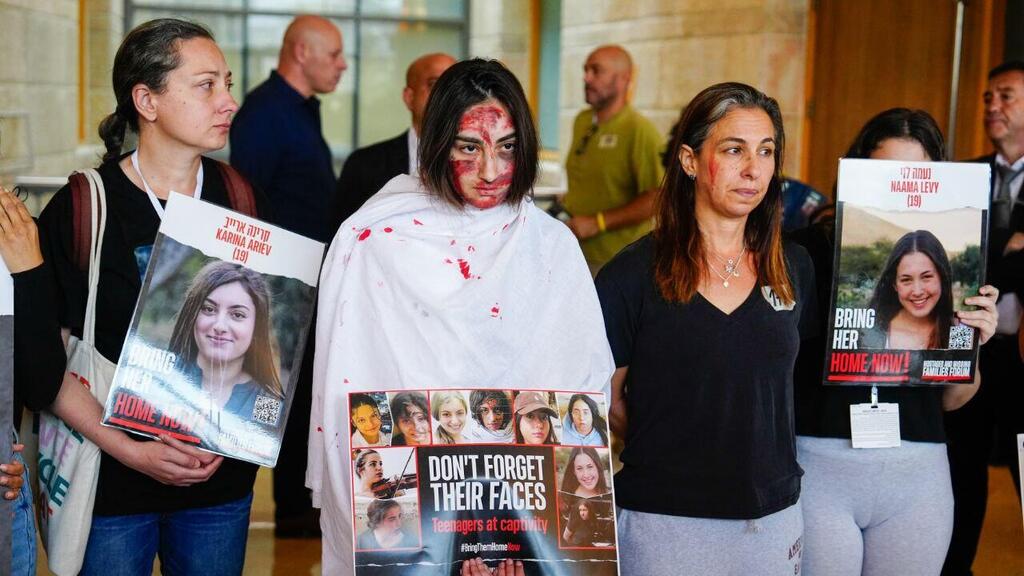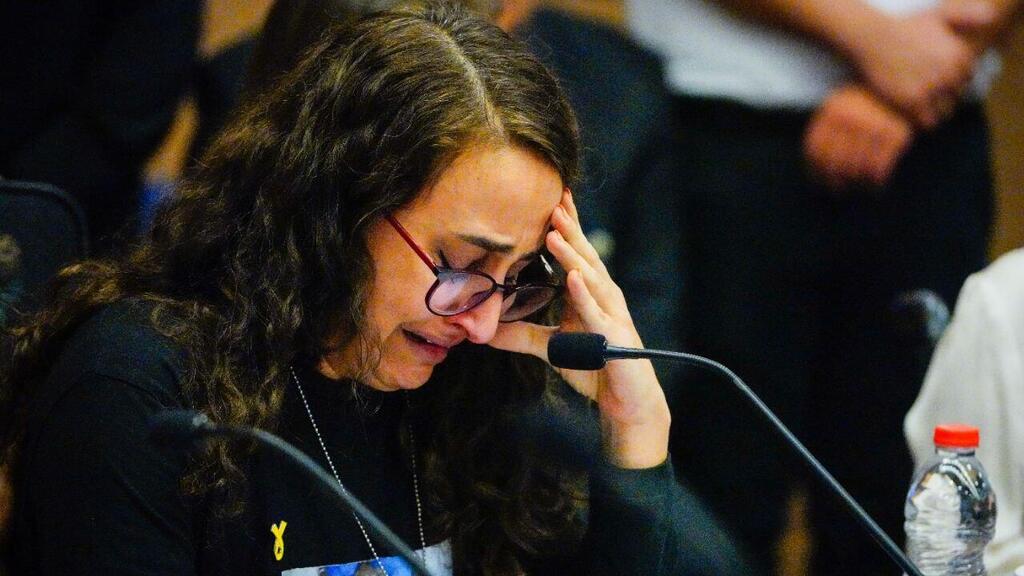Getting your Trinity Audio player ready...
An emergency discussion was held on the situation of women still held hostage in the Gaza Strip by Hamas, in a Knesset committee meeting on Tuesday to promote women's status and gender equality.
Two of the released hostages, Maya Regev and Sharon Aloni-Cunio, testified tearfully about the harrowing moments they endured in Hamas captivity. "Every woman there experiences sexual harassment," said Regev during the discussion, while calling on Knesset members not to forget them. Aloni-Cunio also urged the lawmakers to not forget about the men in captivity, stating that they undergo horrific abuse.
The discussion in the committee, attended by none of the government ministers and only three coalition members, was opened by relatives of the hostages. Mothers and sisters of captives stood outside the committee room with pictures, some wearing shirts stained with blood.
The mother of Liri Albag, a 19-year-old soldier who has been held by Hamas for 179 days, said at the outset of the discussion: "Our daughters suffer daily torment there. They are physically and emotionally harmed. My Liri was, and still - I don't know because I have no information about her - is a servant in the homes of Gazans. All decision-makers, you need to understand that every day you witness the rape happening in Gaza. These girls undergo daily rape, and everyone ignores it. You shut your eyes. I hear Liri crying for help every day - 'Mom, save me already.' Liri's soul is wounded; I no longer talk about the body. And you remain silent and go on vacation?"
The Knesset Spring recess is scheduled to start on April 7.
Regev, released from Hamas captivity, spoke tearfully at the committee meeting. "Every day there is a state of emergency, every minute is crucial. And to hear and see that the Knesset members went on recess, what will the hostages do? Sit on the chair and wait for the Knesset and the government to return to their comfortable seats and decide what to do. Personally, I did not believe it when I saw it," she said. "Every woman there experiences some form of sexual harassment. No matter how you try to sugarcoat it or change it, I, as a citizen, on October 7, did not understand why for hours no one came to save me, and so do all the women who are there," she said.
"I returned after 50 days, and I am dealing with things," Regev continued. "I do not want to describe what they are going through there for 179 days. Your role is to bring them home, the role of the state that disappointed us once. We need your help. All the families here cry out every day. How is that reasonable? I was lucky and returned home. What about them? They need you to sleep with them at night and wake up with them in the morning. They are waiting for someone to come and save them. Every day, the number of people who can be saved decreases, it is not reasonable that it takes so long."
Sharon Aloni-Cunio, who was released in the hostage deal, also attended the Knesset discussion and spoke with tears falling into her trembling hands. "As a woman who was there, I can tell you that the fear is endless. It's indescribable, but I'll try. Being a woman in captivity means living in constant fear. Helplessness is a feeling I wouldn't wish on anyone. Time stands still; every minute feels eternal. Every movement of the terrorists causes a knot in my stomach because who knows what will happen? Will he hurt me? Will he take away one of my children as happened before?"
"The terrorist is the sole decision-maker. I am not allowed to oppose any of his orders," Aloni-Cunio continued. "My opinion doesn't matter, my desires are irrelevant. Only he decides if I live or die in another minute, only he decides if my mother and Yuli are allowed to hug me, and there's no horizon. When I was there in the endless fear, the greatest fear was that they forgot us, that nobody fought for us."
She called on the lawmakers not to forget about the men in captivity and expressed concern for her husband David's fate. "He's my strength; I cannot leave anyone behind," she said. "Men also undergo terrible abuse in captivity. We heard the testimonies, and they are horrifying. They are desperate; the tears dried long ago, and hope no longer exists. I can testify to that first hand. I understand and accept that the first and necessary step should be the release of the women, but after 179 days, my David is already a humanitarian case."
The chairwoman of the Committee for the Advancement of Women's Status, lawmaker Pnina Tamano-Shata, said that the committee "convened this discussion to push the government to bring home the kidnapped women and men. We've all been exposed to testimonies. They need to be brought back home. It's in our hands. It's not a matter of fate, and we cannot imagine what you and your families are going through. This committee, overseeing the status of Israeli women and supervising the government, will draft the protocol and demand that the prime minister take immediate action to bring them back while expanding the authority of the negotiator."




